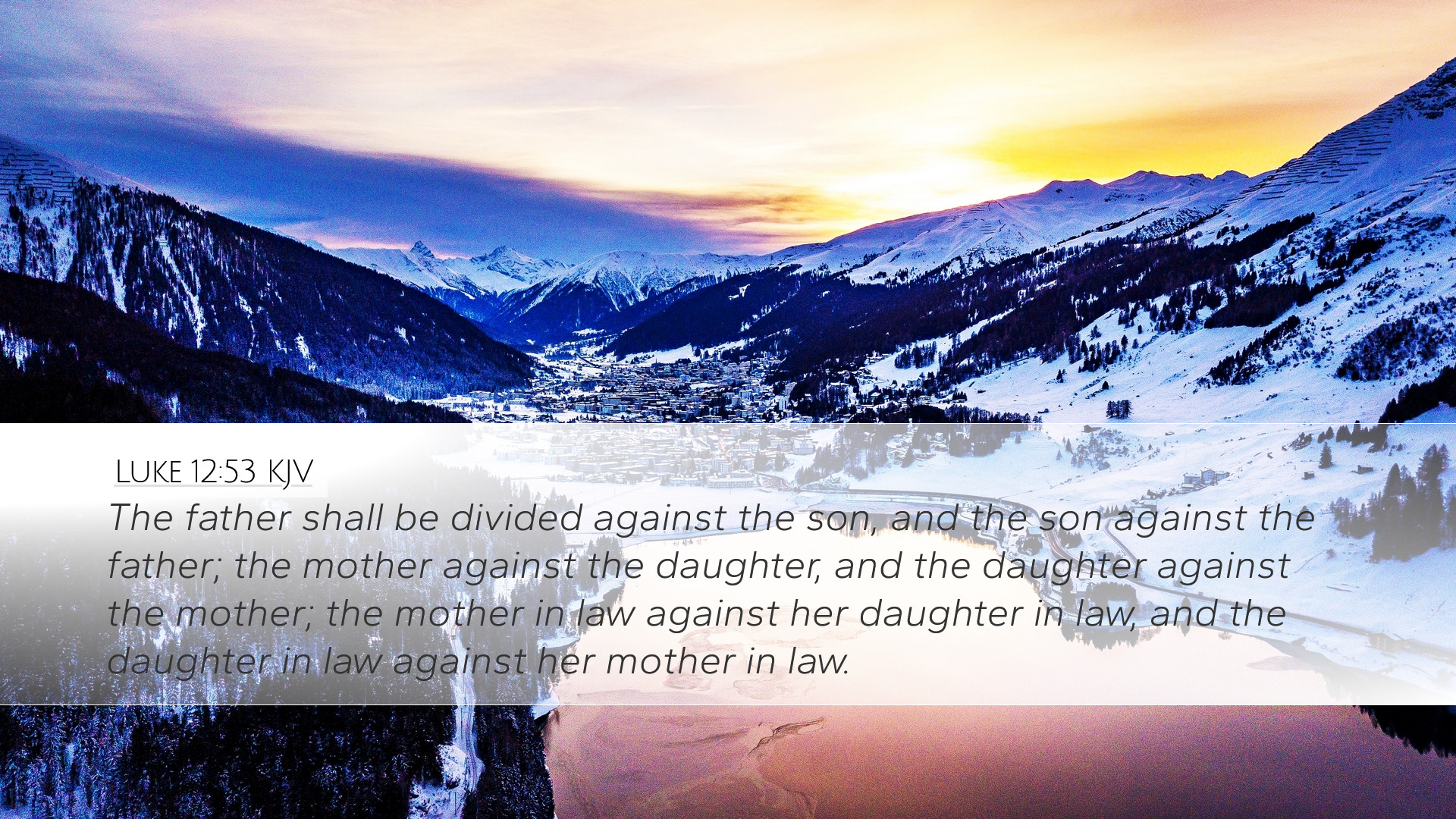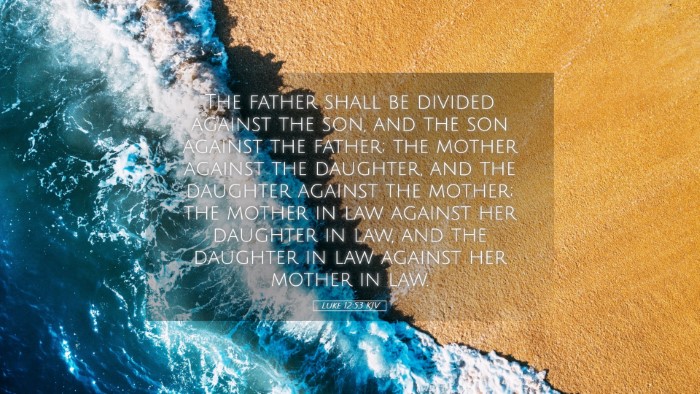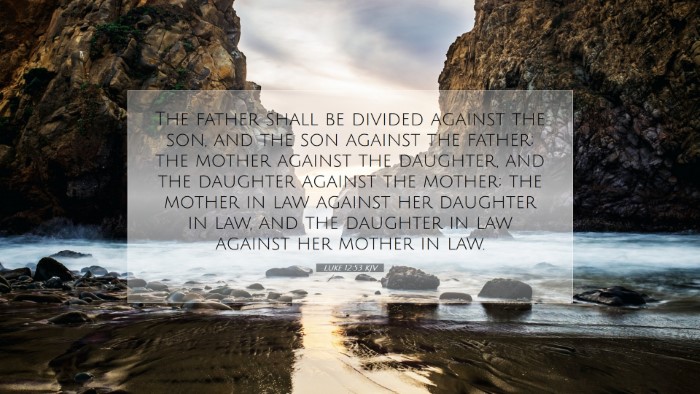Commentary on Luke 12:53
Luke 12:53 states: "They will be divided, father against son and son against father, mother against daughter and daughter against mother, mother-in-law against her daughter-in-law and daughter-in-law against mother-in-law." This verse encapsulates a profound truth about the social and familial implications of following Christ. The tension within families reflects the divisive nature of the Gospel, which Jesus forewarned would occur as a result of His mission on earth.
1. Contextual Analysis
The passage of Luke 12 falls within a larger discourse where Jesus teaches about the nature of His ministry and the expectations He has for His followers. Here, He speaks of the cost of discipleship and how it can lead to discord even among the closest of relationships. This verse serves as a somber reminder that allegiance to Christ can come at the expense of earthly ties.
2. The Nature of Division
Matthew Henry points out that the division mentioned in this verse is not incidental but a direct consequence of Christ's teaching. As families often operate as unified entities, the appearance of division indicates the weight of the decision to follow Christ. As the Gospel creates a dividing line, he emphasizes that truth can create conflict. Hence, those who embrace the Gospel may find themselves at odds with loved ones who reject it.
3. Theological Implications
Albert Barnes highlights that the spiritual transformation that comes from accepting Jesus must often confront prevailing familial allegiances. He notes that a believer's new identity in Christ often leads to conflict, as the light of the Gospel exposes the darkness of sin that may inhabit a family. Thus, this division is not merely a social phenomenon but has deep theological roots in the concept of sin and redemption.
4. Applications for Discipleship
Adam Clarke elaborates on the necessity for potential disciples to count the cost of their commitment to Christ. This passage signifies that acceptance of the Gospel necessitates a loyalty shift from family affiliations to divine commitments.
- Faith over Family: In situations where loyalty to family conflicts with fidelity to Christ, believers are called to prioritize their relationship with God.
- Encouragement in Conflict: For those experiencing family strife due to their faith, this verse serves as a reminder that such conflicts are anticipated and may reaffirm their faith journey.
- Witnessing through Division: The divisions can, ironically, lead to opportunities to witness; as believers remain steadfast in their faith amidst familial opposition, they may draw others to Christ.
5. Historical Context
Understanding this verse also requires consideration of the historical context in which it was spoken. In the first-century Jewish society, family bonds were paramount, and to abandon traditional beliefs was a significant social risk. Early Christians frequently faced ostracism, thus strengthening the resolve of those who desired to follow Christ amidst adversity. This context informs modern believers that divisions over faith are not new and align with historical precedents.
6. Modern Reflections
Today, Christians continue to face similar challenges. Conflicts arising from different beliefs can strain familial relationships, yet this division may also be rich with opportunity for dialogue and reconciliation based on the Gospel's message of love and truth. It remains vital for believers to act with grace, patience, and understanding toward family members who may not share their faith.
7. Conclusion
In summary, Luke 12:53 reveals that the call to follow Christ may lead to substantial familial division. The commentaries by Matthew Henry, Albert Barnes, and Adam Clarke collectively underscore the serious implications of this division. For pastors, students, theologians, and Bible scholars, this text invites reflection on the nature of discipleship amidst conflict, the priority of faith obligations over familial loyalty, and the historical witness of believers throughout the ages.
As we navigate our own contexts, we are encouraged to remember that the call to discipleship is one that prioritizes our relationship with God above all, providing both challenge and hope in this divided world.


